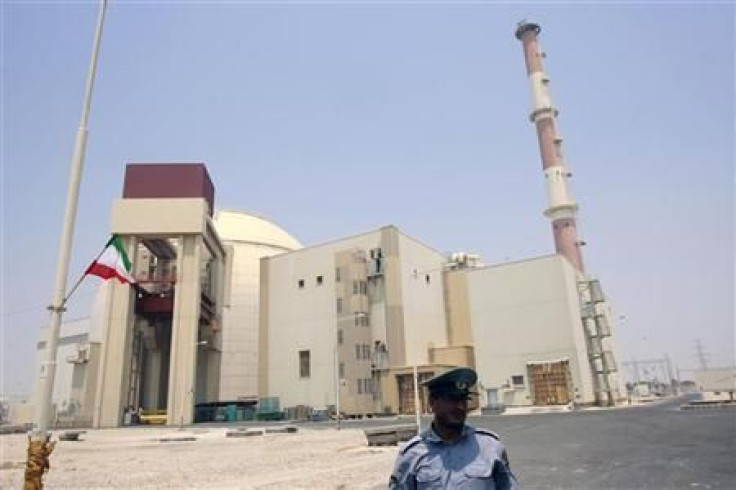Iran Threatens To Enrich Uranium To 60%, Getting Awfully Close to Bibi’s Red Line

The deputy speaker of the Iranian parliament warned Tuesday that if talks over Iran’s nuclear program fail, the government will plow ahead to enriching uranium up to 60 percent, Iran’s Press TV reports.
“In case our talks with the P5+1 group [the U.S., the U.K., France, China, Russia and Germany] fail to pay off, Iranian youth will master enrichment up to 60 percent to fuel submarines and ocean-going ships,” Mansour Haqiqatpour said.
He also said that further postponing of negotiations would mean that “Iran cannot guarantee it would keep its enrichment limited to 20 percent. This enrichment is likely to increase to 40 or 50 percent.”
To make an atomic bomb, uranium needs to be enriched to 90 percent, a point Israeli Prime Minister Benjamin Netanyahu vividly illustrated in his address to the U.N. General Assembly last week.
Iran’s argument is and has always been that it intends to enrich uranium for peaceful means, and not to make a bomb. The Supreme Leader, Ayatollah Ali Khamenei, even went so far during the Non-Aligned Movement summit in Tehran at the end of August to call the making of nuclear weapons a “sin,” and Iran maintains that because it signed the Non-Proliferation Treaty -- unlike Israel -- it is allowed to develop nuclear energy.
“Our motto is nuclear energy for all, nuclear weapons for none,” Khamenei told the Non-Aligned Movement meeting.
Despite Iran protestations that nuclear weapons are not in the country’s future, the U.S., Israel, and most Western powers remain adamant that Iran should not be allowed to further enrich uranium.
Iran has come under increasing scrutiny for its nuclear program. Israeli leaders have threated to launch a military strike on Iranin nuclear sites -- with or without the help of the U.S.
Also on Tuesday, the U.N. High Commission for Human Rights issued a statement expressing dismay over recent arrests and jailings of several prominent human rights and political activists and journalists in Tehran in the past two weeks.
“This appears to reflect a further severe clampdown on critical voices in the country,” High Commissioner for Human Rights spokesman Rupert Colville told reporters. “We urge the government of Iran to promptly release all those who have been arrested for peacefully exercising their fundamental rights.”
© Copyright IBTimes 2024. All rights reserved.












